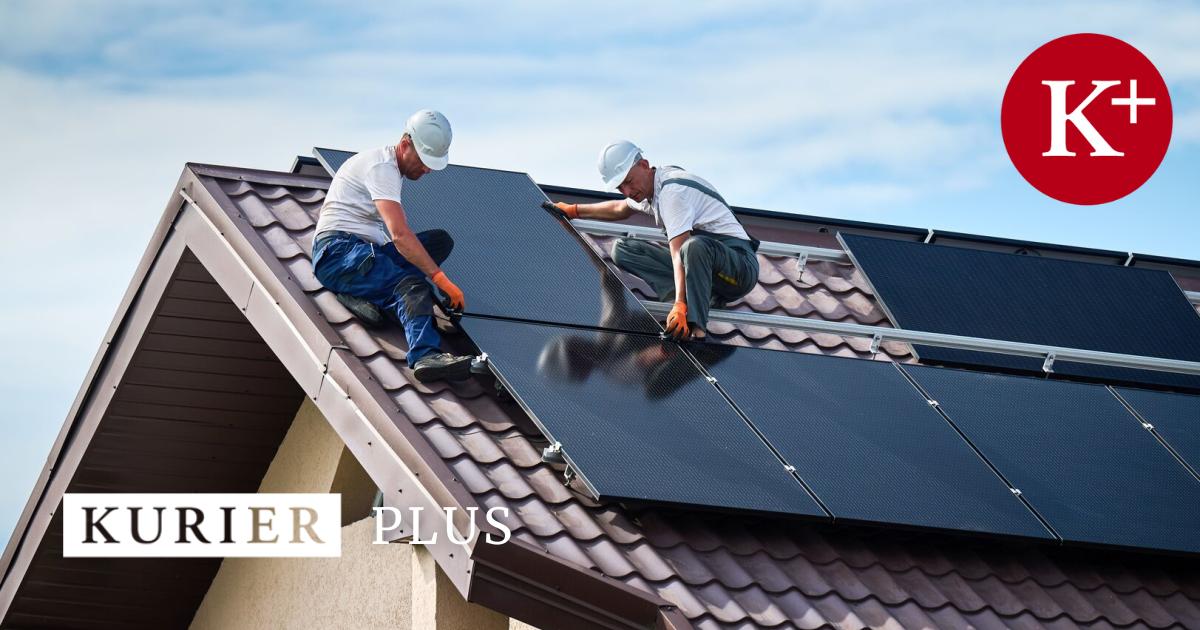The most important point is one clear commitment to a new energy systemsays PV Austria Managing Director Vera Immitzer. “At the moment there is one Abolition of funding discussed. That would be a fatal Signal. The VAT exemption for private PV systems is a significant relief.” Maintaining the state support measure is essential for creating willingness to invest and giving companies planning security. The VAT exemption also requires hardly any organizational effort and is therefore very efficient.
Solar technology entrepreneur Burkhard Neuper describes that his company is having one this year Sales decline by 50 percent expected. Due to the generally gloomy economic situation, sales have fallen, while wage costs have increased at the same time. “The PV sector is strong dependent on market impulses. Small changes are followed by very sensitive reactions.” Politicians are required to bring stability and continuity.
Dynamic feed-in and expansion alongside wind power
Stable networks are another important field of action. It is important to the industry association that the performance of new PV systems in the network not statically throttled to 70 percent as demanded by some experts in the interest of grid stabilization. Instead, the feed-in from PV systems should be regulated dynamically, depending on how much electricity the grid can absorb at a certain time. The costs for building the infrastructure should also come through sooner state funds and are covered less by network fees.
Point three: The Energy spatial planning of the federal states. Some of them are “very hesitant on the way“When it comes to making areas available for PV systems. We also recommend increasing the expansion of PV systems near wind turbines. “The grid connection is already there here,” says Immitzer. Fourthly, there will be a “flexibility revolution ” demanded. Photovoltaic electricity must be able to be stored better than before. There are still major barriers to the operation of Saveboth on a large scale (network operators) and on a small scale (subsidies for household storage).
Uniform rules for permits nationwide
This is the fifth field of action Eliminate the approval confusion. “Each federal state has different requirements for system approval,” says Immitzer. “Plant installers have to know over 35 laws. That is a madness!” Uniform regulations and central contact points and the implementation of EU requirements would bring enormous relief here.
There are great hopes for the latter point, which has not yet been implemented Renewable Energy Expansion Acceleration Act (EABG)explains Herbert Paierl, CEO of PV Austria. “PV projects take between five and six years to be implemented.” Although this is shorter than with wind power projects, it is still far too long. That too Electricity Industry Act (ElWG)which is important, among other things, for the development of storage facilities, must finally be implemented: “We don’t have a government yet, but we have a parliament that can act. A two-thirds majority would not be a problem. The law is ready for adoption.”
1.8 gigawatts per year is not enough
The 1.8 gigawatts of photovoltaic expansion expected this year are not enough if Austria’s climate goals are to be achieved. “According to the expansion plan, we need at least 2 gigawatts per year“, says Paierl. The PV expansion is important for the local economy. “We have to purchase modules from China, but the domestic added value is enormous. Around 10,000 jobs are linked to solar energy.”
